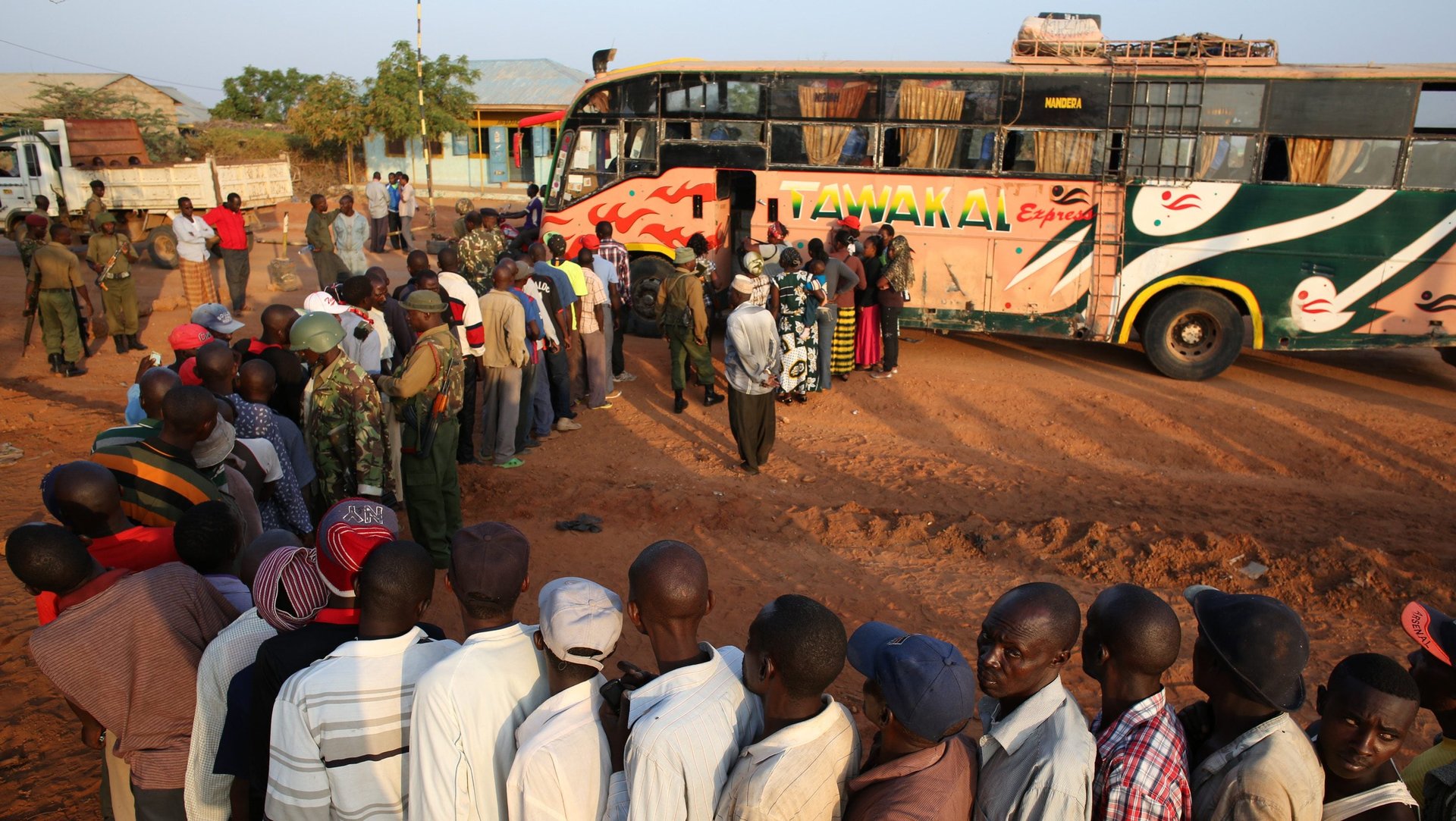This Oscar-nominated film shows how terrorists put Kenya’s religious harmony to test
On the day it launched in Kenya’s capital Nairobi, the movie Watu Wote: All of Us bagged its biggest win yet: a nomination at the Oscars’ Live Action Short Film category.


On the day it launched in Kenya’s capital Nairobi, the movie Watu Wote: All of Us bagged its biggest win yet: a nomination at the Oscars’ Live Action Short Film category.
The 22-minute film is based on a true story that happened on a bus heading to Mandera, a small town in northeastern Kenya on the border with Somalia. In Dec. 2015, an attempted attack by the Islamist terrorist group al-Shabaab was thwarted after Muslim passengers refused to comply with assailants’ demand that they identify Christians amongst them—saving them from almost certain death. Even after militants threatened to shoot, the Muslims protected their “brothers and sisters” and even gave them Islamic religious attire so that they weren’t easily identified.
For decades, religious co-existence in Kenya was commonplace, with churches built next to mosques across from temples—not to mention the occasional synagogue. The integration was also enforced by communities sharing classrooms and attending each other’s weddings and funerals. But for several years now, Kenya has been the target of terrorist attacks especially since the army’s intervention in Somalia in 2011. The increased attacks and explosions have created an atmosphere of anxiety and suspicion between Muslims and Christians, putting a litmus test to the nation’s longstanding religious harmony.
Al-Shabaab also actively wove this narrative of animosity and mistrust. In their recruitment videos and messages online, they played to the grievances facing Muslims in a Christian-majority nation, including poverty, discrimination, and underdevelopment in their regions. The group also used separation as a tactical gambit during attacks. When they attacked the Garissa University College in April 2015, they separated Muslims and Christians, eventually killing 147 people. In Nov. 2014, they did the same on a bus in Mandera, killing 28 people. When they assailed an upscale shopping mall in Nairobi, they singled out non-Muslims and killed 67 people.
In a clumsy bid to clamp down on the terrorist threat, Kenya’s government ended up ostracizing its own Muslim community, who also bore the brunt of al-Shabaab’s activities. All this joined to create a chasm between the adherents of the two faiths.
And that’s why the bus incident in Mandera—ultimately a story of solidarity and hope—galvanized a troubled nation in 2015. By standing together, passengers turned an action devised to be a fault line into a lifeline. And that’s probably why Watu Wote, directed with the participation of Kenyan crew by German filmmaker Katja Benrath, resonated with many people in Kenya—and ultimately with voters at the Academy Awards.